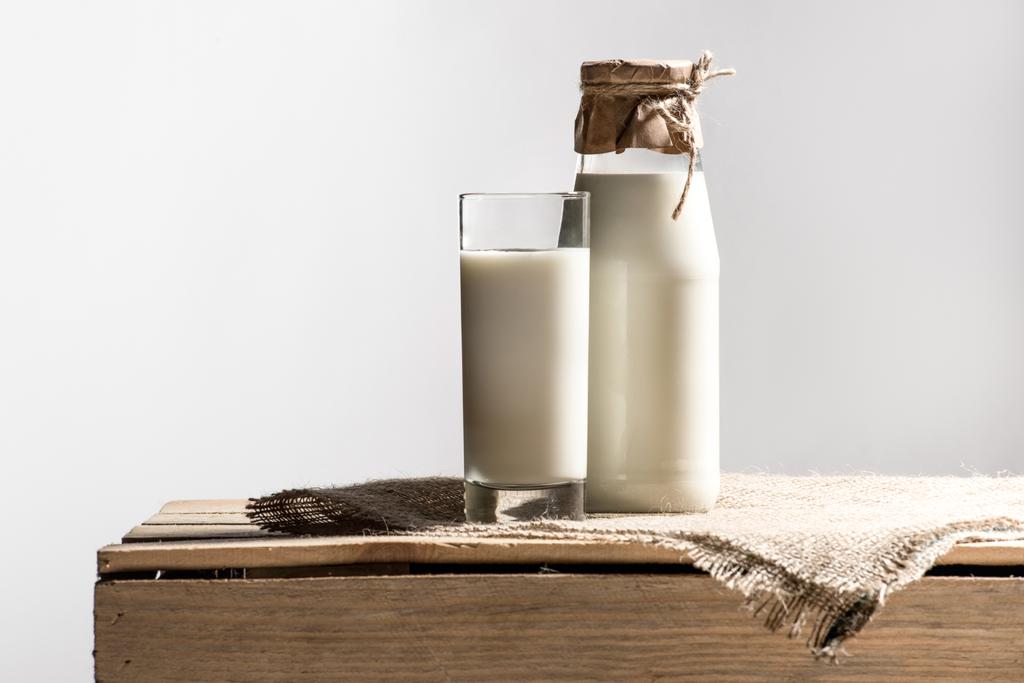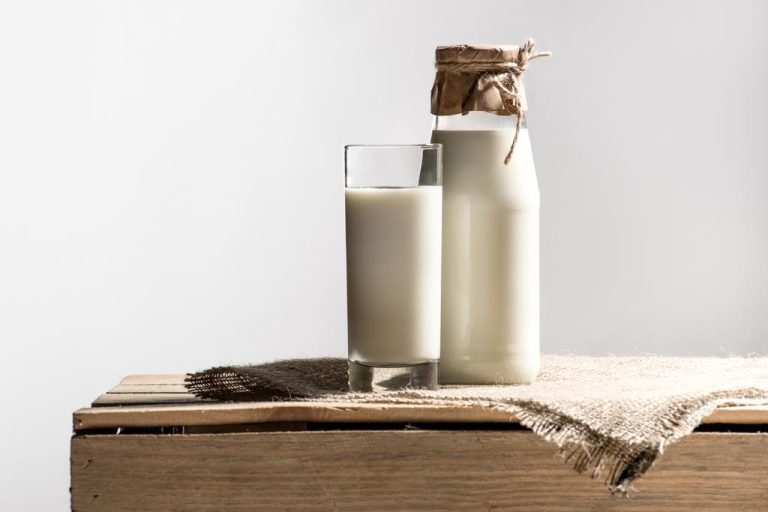Vegan, lactose-free, more nutritious than soy and rice milk: at first glance, “oat milk” seems to be the best milk substitute. But how healthy is an oat drink really?
The times when oats were only for horses and only landed on our plates as porridge or oat flakes in muesli are long gone. The nutrient-rich power grain is becoming more and more popular, as it contains significantly more minerals and fats than wheat or rye, for example.
Thanks to the high-fat grains, oats can also be processed into a tasty milk alternative for people with lactose intolerance, milk protein intolerance or vegan diets. The nutritious oat milk scores with a number of advantages over soy or rice milk and has become increasingly established in recent years.
“Oat milk” – what is that anyway?
Strictly speaking, according to EU legislation, the term “oat milk” should not be used at all, as the term “milk” is reserved for animal milk from cows, sheep, goats or horses. The milk substitute is therefore commercially available under fancy names, as an oat drink or oat drink. In this article we use the term as it is used by the normal consumer.
Oat milk is basically just made from oatmeal and water. The flakes are soaked in water and mashed. After a short fermentation phase, the oatmeal is filtered – the resulting liquid is the oat milk. During industrial processing, additives such as calcium or stabilizers are then added and the product is preserved by ultra-high heating.
What are the nutritional values of oat milk?
Oats are a real power grain that contains many essential amino acids, minerals such as potassium or magnesium and fiber. However, many of these substances are lost during processing. Oat milk therefore no longer has a particularly high nutrient content, but it does impress with the beta-glucans, a special type of sugar that helps regulate digestion.
How healthy is the oat drink?
Oat milk contains no lactose, no milk protein and no components of soy, but a relatively large amount of fiber, which makes you comparatively full. For anyone who suffers from an intolerance or even allergy to one of these substances, oat milk is a good milk substitute that is not unhealthy. In addition, the grain milk is free of cholesterol and thus helps to lower the cholesterol level.
However, the grain milk made from oats contains gluten – the oat drink is therefore not suitable for celiac disease patients or people who want or need to eat gluten-free. Pure oat milk without additives is usually well tolerated by babies and toddlers and can even help to regulate digestion.
Since the oat drink does not contain any calcium, however, it makes no sense to exclusively feed it, especially for growing children. In addition, industrially produced oat milk often contains a lot of sugar, emulsifiers and other additives that quickly make the milk substitute unhealthy.
Recipe: Homemade oat drink
If you want to be sure that the oat milk does not contain any unnecessary additives, you can make it yourself quickly and easily. You only need:
80 g organic oat flakes (fine)
1 liter of water
and 1 pinch of salt
And this is how easy it is:
Boil water, let the flakes swell in it, then puree.
The oatmeal is then filtered through cotton cloth, allowing the oat milk to drip into a bowl, leaving the solids in the cloth.
Wring out the cotton cloth well so that no liquid is lost.
The finished oat milk can be stored in sealed containers in the refrigerator for about three days.

Oat drinks: milk substitute with calories
At only around two percent, oat milk contains significantly less fat than whole cow’s milk. But the milk substitute made from cereals is still a real source of energy: The starch contained in the grains is also retained in the oat drink, which – depending on the product – accounts for 40 to 60 kilocalories per 100 milliliters.
The heating and fermentation process also breaks down the slowly digestible starch of the oats into easily digestible sugars, making the grain milk a real calorie trap. For comparison: 100 ml of cola contains 42 kcal – so oat milk is just as unsuitable as a thirst quencher as the sweet soft drink. However, whole milk has even more calories: around 65 kcal per 100 ml.

